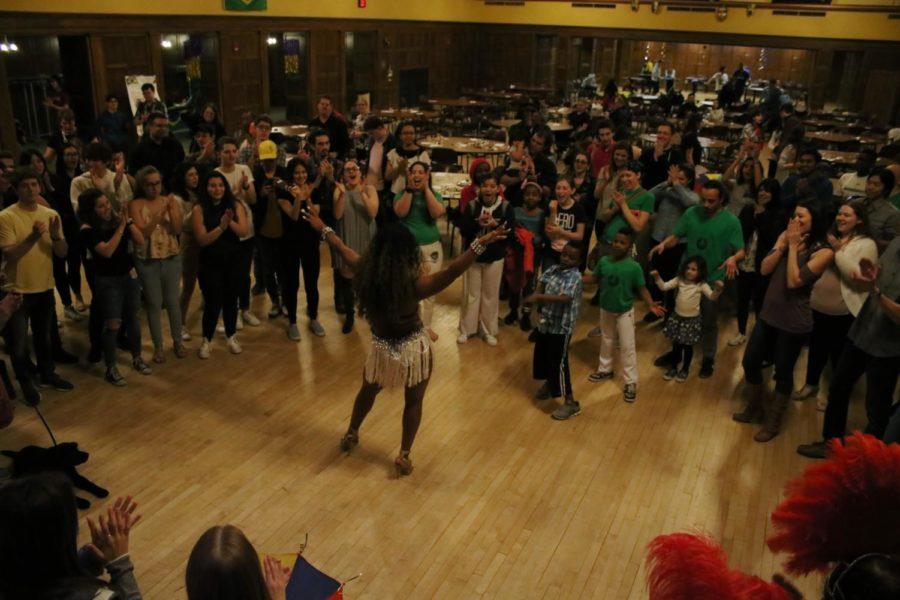First ever Brazillian Carnival celebration at Iowa State
March 5, 2018
Carnival is a celebration held five days before the beginning of lent, the 40-day period before Easter. The tradition of the holiday is to go out to the street and party together. It’s an inclusive holiday meaning during Carnival, social conventions no longer exist, everyone is free to dress as they wish with costumes.
People can celebrate regardless of age, gender, ethnicity or religion. Carnival in Brazil can go from the traditional samba schools’ parades to the street parties, popularly known as “blocos.”
The first Brazilian Carnival celebration at Iowa State was hosted on Sunday afternoon in Great Hall of the Memorial Union. The celebration lasted four hours and attracted more than 300 people.
Victor Perez, sophomore in aerospace engineering and president of Brazilian Student Organization, said when he first came to the university, there was no organizations for Brazilian international students. He founded the organization last semester, and the Carnival celebration was the organization’s first big event.
“The organization and the events we’ve had really make me feel like at home,” Perez said. “There is also misconception about Latino culture. There is a lot of diversity in the state of Iowa, but the diversity is not present. I just want to make that happen.”
On Sunday night, attendees were welcomed by traditional Brazilian music performed by Choro Moingona. Choro Moingona is an instrumental band from Des Moines that plays a Brazilian style of music called choro.
Choro, a virtuosic predecessor to samba, arose in Rio de Janeiro during the late 19th century.
Next on the stage was a group from Des Moines named Roots Capoeira de Ouro which is a nonprofit organization that promotes health, builds community and shares culture. The group performed capoeira which was originated in the Brazilian colonial period.
Capoeira is a form of martial art practiced by African slaves to avoid retaliation from plantation owners. Nowadays, capoeira is one of Brazil’s most known cultural traditions. It’s a mix of martial art and dance.
The rest of the event was mainly just for people to dance and party. The band Planeta Azul was playing live music, and a samba dancer was leading the dance movements for the crowd. Planeta Azul is an artistically rich group of Brazilian musicians complimented by Samba dancers, Passistas.
Leon Machado, freshman in electrical engineering, is from Concordia, Brazil. He said this event is for all students and faculty members to experience the fun in Brazilian culture.
“I know the Brazilian Carnival has a religion origin, but in modern society, it’s just about partying and having a good time,” said Machado.







